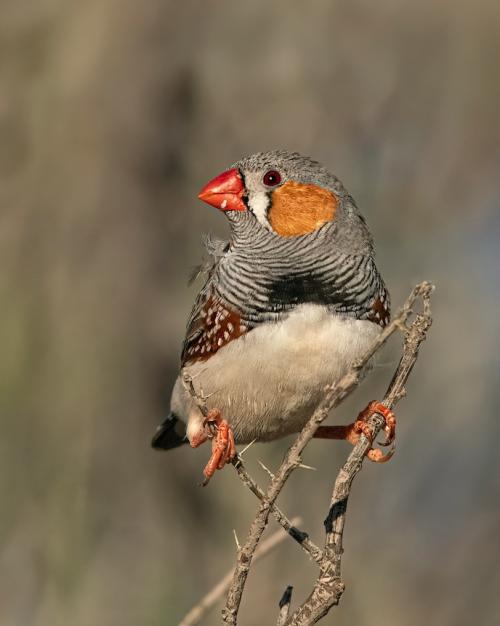Jesse Goldberg, associate professor and Robert R. Capranica Fellow in the Department of Neurobiology and Behavior, has been selected by the Pew Charitable Trusts to be a member of the 2023 class of Innovation Fund investigators.
Goldberg studies the ways learning processes are implemented in the brain. He will team up with New York University’s Robert C. Froemke to undertake joint research into how parents feed their young, in birds and mammals. The pair of researchers is one of six in this year’s class of investigators.
“We believe by joining forces and using a comparative cross-species approach, as well as combining studies of natural behavior with physics- and machine learning-inspired methods for carefully controlled experiments, we can achieve a breakthrough in understanding the neural mechanisms by which parental animals are able to balance their own needs with the needs of their offspring,” the researchers wrote.
The study brings together two labs focused on opposite ends of the nervous system and in different species. The Goldberg lab studies motor control, including tongue kinematics in mice and singing and courtship behavior in birds. In contrast, the Froemke lab studies hearing in rodents.
In this study, the labs will work together to test if seemingly distinct parental behaviors in birds and mammals are governed by common neural signals.
Hungry zebra finch chicks make “begging calls” that cause parents to forage and bring food back to the nest, Goldberg explained, while hungry or isolated mouse pups make ultrasonic vocalizations that cause lactating mother to retrieve them to the nest and nurse.
“Though feeding through regurgitation and nursing are fundamentally distinct ways of transmitting calories and nutrients to young, in both species parents must prioritize the needs of offspring at the potential expense of their own,” Goldberg said.
The Goldberg and Froemke labs will run parallel studies in birds and mice to learn more about the dopamine and oxytocin signals in the neurons that drive the vocalizations. By exploring this process in two distinct species, the pair hopes to shed light on parent-child interactions at both the neural and behavioral levels.
For nearly 40 years, Pew has encouraged collaboration among its diverse community of biomedical scientists, leading to the 2017 launch of the Innovation Fund. The award, which is supported by the Kathryn W. Davis Peace by Pieces Fund, was developed to support creative and cross-disciplinary partnerships among alumni of Pew’s three biomedical programs.
The 12 scientists in the 2023 class of Innovation Fund investigators will research projects ranging from neuroscience and immunology to cancer biology, aiming to boost scientific discovery and improve human health.
“An interdisciplinary approach to research is critical to uncovering scientific breakthroughs and making lasting change,” said Donna Frisby-Greenwood, senior vice president for Philadelphia and scientific advancement at the Pew Charitable Trusts. “Pew is thrilled to support this exceptional group of investigators, whose collective efforts will help move the needle in important areas of health and medicine.”




